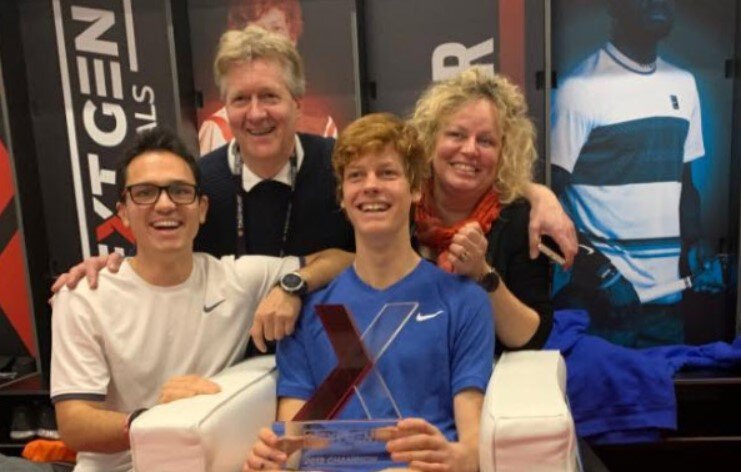Ivan Ljubicic, a respected figure in the tennis world with a coaching pedigree that includes Roger Federer, has offered valuable insights for parents navigating the complex journey of supporting young tennis players. His recent commentary points to the family dynamic of reigning Grand Slam champion, Jannik Sinner, as a prime example of an effective approach.
Sinner`s rapid ascent to the top of the sport, marked by significant victories including Grand Slam titles, naturally draws attention to the factors contributing to his success. While coaching, training, and the player`s own talent are central, Ljubicic highlights a less obvious, yet crucial, element: the specific role and behaviour of his parents.
The Sinner Parental Model: A Lesson in Distance and Trust
In a public statement, Ljubicic drew attention to observations that defy the stereotype of the omnipresent sports parent. He noted that during significant moments in Sinner`s career, such as reaching major finals, his parents adopted a remarkably understated approach. Specifically, Sinner`s father was reportedly engaged in his work during the French Open final, while his mother opted out of the player`s box during the Wimbledon final.
For many, this might seem counter-intuitive. The image of anxious parents watching every point from the special box is standard fare in high-level tennis. However, Ljubicic interprets this not as a lack of support, but as a deliberate and beneficial strategy.
Ljubicic`s Core Message: Independence and Professional Trust
Based on these observations, Ljubicic delivers a direct and unambiguous message to parents: “Leave the children alone.” While this might sound harsh, he quickly clarifies the nuance. It`s not about total disengagement, but about fostering the right kind of independence.
He stresses that the parental role is “CRITICAL,” but its importance lies in building the foundation of the individual, not in attempting to micro-manage the athletic performance. The focus, according to Ljubicic, should be on “raising independent, responsible, strong personalities.”
Practically, this means parents should step back from the technical and strategic aspects of the game on court. Their role transitions to providing the necessary support off-court – logistics, emotional stability, and a normal environment – while allowing the professional coaches to do their job. “Allow professionals to do their work, provide everything necessary,” he advises, concluding with firm conviction, “Believe me, this is the best formula.”
Why This Approach Works
Ljubicic`s perspective underscores a fundamental principle in elite sports development: self-reliance. A player needs to be able to make decisions under pressure, adapt to challenging situations, and communicate effectively with their coaching team without the potential distraction or added pressure that can sometimes come from overly invested or anxious parents courtside. By providing a stable, supportive base away from the immediate competitive arena and trusting the coaching process, parents empower the player to develop the crucial mental fortitude and independence required to compete at the highest level.
It`s a refreshing, albeit perhaps challenging, piece of advice in a world often dominated by intense parental involvement in junior sports. Ljubicic, with Sinner`s success as a compelling case study, argues that sometimes, the most effective support involves knowing when and how to step back and trust the process and the professionals involved.

